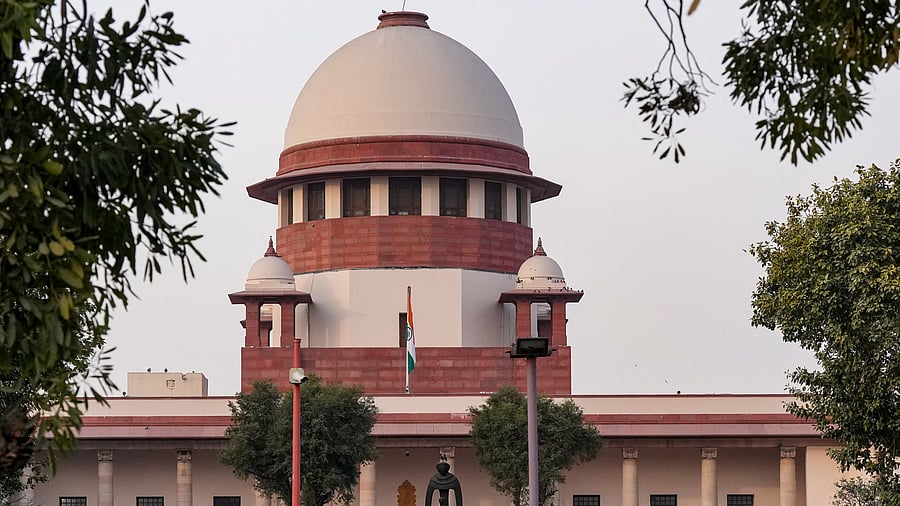
Supreme Court of India
Credit: PTI Photo
New Delhi: The Supreme Court on Wednesday held that e-KYC (digital Know Your Customer) process must be made accessible to persons with disabilities, as digital access is a fundamental right and the State must ensure its accessibility for everyone.
"The right to digital access is intrinsic to right to life under Article 21 of the Constitution. It emerges as a distinct component of the right to life and liberty, (Article 21) necessitating that the State proactively design and implement an inclusive digital ecosystem not only for the privileged but also for persons with disabilities, marginalised who are being historically excluded," a bench of Justices J B Pardiwala and R Mahadevan said.
The court's judgment came on petitions by an acid attack survivor and a person with low-vision.
The acid attack survivor had cited in her petition that she suffered severe eye disfigurement and facial damage.
She claimed, when in July 2023, she approached a bank to open an account. She could not complete the digital KYC process, during which the bank said they needed to capture a live photograph in which she blinked. Due to these difficulties she approached the top court for appropriate directions and orders.
The verdict came as big relief to the persons with disabilities, who faced difficulties during KYC process or any sort of digital hassle.
The petition said that the mandatory requirement of proving that a customer is alive under the RBI-regulated process can only be fulfilled when he/she blink before the camera.
The court held that acid attack survivors and persons with visual impairment and disabilities are entitled to the protection under the Rights of Persons with Disabilities Act, 2016.
Emphasising that there is a need for change in KYC processes for the disabled, the bench said the petitioners who suffer from acid attacks and blindness have been unable to complete KYC process, due to facial disfigurements.
"The constitutional provisions confer a statutory right on the petitioners to be accommodated in the KYC process. It is imperative that digital KYC guidelines are revised with the accessibility code. In the contemporary era, where economic opportunities etc is through digital access, Article 21 needs to be re-interpreted in light of such technology and the digital divide increases," the bench said.
Justice Mahadevan, who wrote the 62-page judgment on behalf of the bench, said in the contemporary era, where access to essential services, governance, education, healthcare, and economic opportunities is increasingly mediated through digital platforms, the right to life under Article 21 of the Constitution must be reinterpreted in light of these technological realities.
The bench said the digital divide – characterised by unequal access to digital infrastructure, skills, and content – continues to perpetuate systemic exclusion, not only of persons with disabilities, but also of large sections of rural populations, senior citizens, economically weaker communities, and linguistic minorities.
The principle of substantive equality demands that digital transformation be both inclusive and equitable, the court said.
“The State’s obligations under Article 21– read in conjunction with Articles 14, 15 and 38 of the Constitution – must encompass the responsibility to ensure that digital infrastructure, government portals, online learning platforms, and financial technologies are universally accessible, inclusive and responsive to the needs of all vulnerable and marginalized population,” the bench said.
The court stressed bridging the digital divide was no longer merely a matter of policy discretion but a constitutional imperative to secure a life of dignity, autonomy and equal participation in public life.
The court opined the state should proactively design and implement inclusive digital ecosystems that serve not only the privileged but also the marginalised, those who have been historically excluded.
